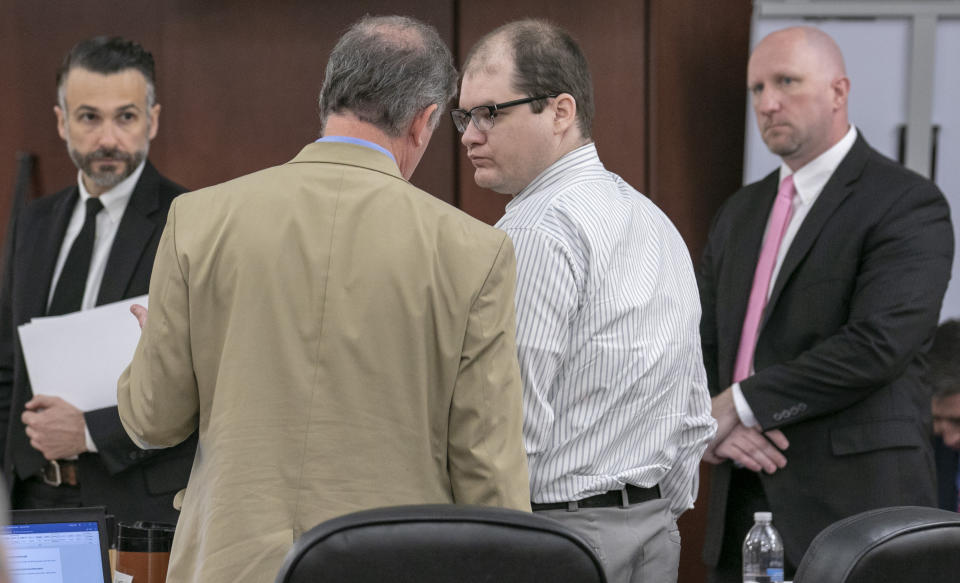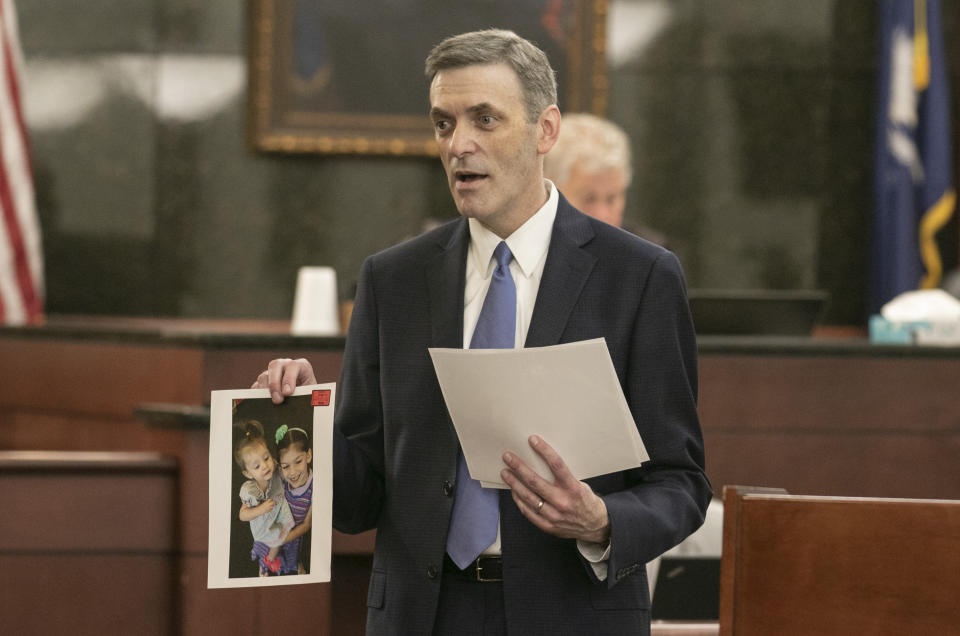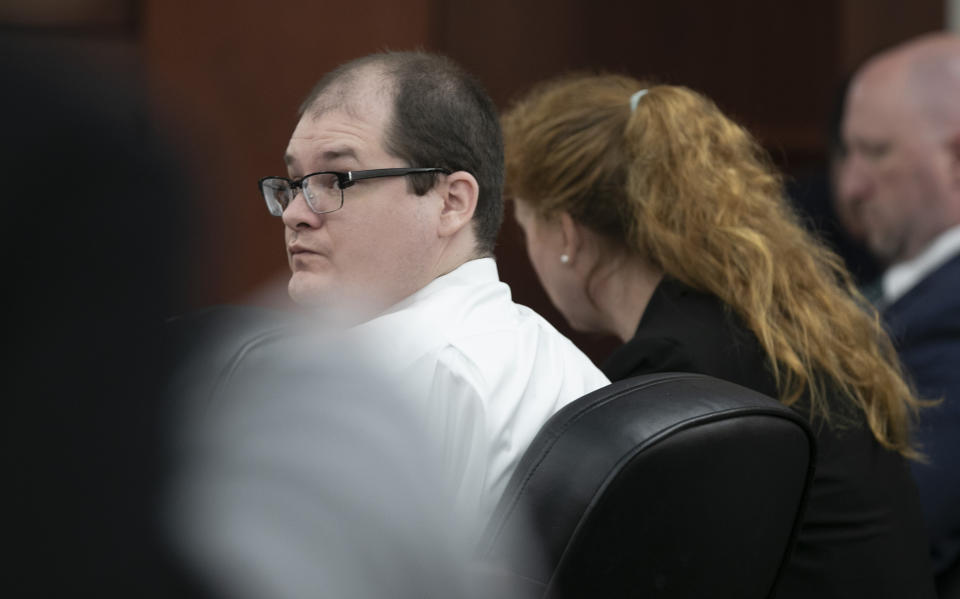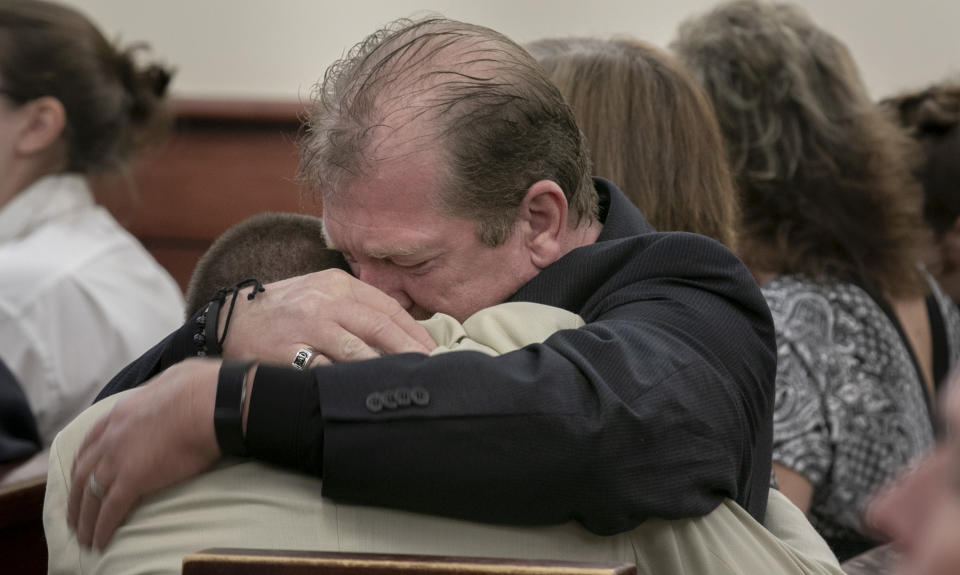Dad sentenced to die, but executions rare in South Carolina
COLUMBIA, S.C. (AP) — A father who killed his five children will be a new resident on South Carolina's death row, where the population has dropped by 25% in eight years — but not because of executions, since the state hasn't put anyone to death in that time.
The state is in an unofficial death penalty moratorium because prison officials have no drugs to carry out lethal injections and pharmaceutical companies publicly refuse to sell them more. And prosecutors, facing rising costs and more vigorous defenses in court, don't seek the ultimate punishment as frequently.
Timothy Jones Jr., sentenced to death Thursday for killing his children aged 1 to 8 in their Lexington home, is only the third new admission to South Carolina's death row in 10 years.
"It is frustrating and unfair. You have to start to wonder what is the purpose of having a death penalty if it can't be used," said state Sen. Greg Hembree, a former prosecutor who sponsored a bill that would have forced condemned inmates to the electric chair or firing squad. The bill failed to pass in 2019.
The trend toward fewer executions and death row inmates but more life without parole sentences is reflected across the country, according to the Death Penalty Information Center, a nonprofit organization that gathers data on the death penalty.
Virginia has executed 113 prisoners since 1982, but only three inmates remain on its death row. In Georgia, the only person sent to death row since 2014 acted as her own lawyer, and the state has executed 20 prisoners during that time span. Oklahoma executed 112 prisoners starting in 1990, but none since using the wrong drug in a botched 2015 lethal injection, according to the center.
"With better lawyers and juries that aren't afraid if they sentence someone to life that they will be released to commit another murder, the death penalty almost becomes a vestige," said Robert Dunham, executive director of the nonprofit.
A Winthrop University poll from February 2018 found that two-thirds of South Carolina's residents still support the death penalty, even if about half felt it wasn't applied fairly in the U.S.
South Carolina ran out of the drugs needed for lethal injection in 2013 and hasn't been able to buy more since.
Prisons Director Bryan Stirling has asked lawmakers several times for various bills — to shield the names of companies selling the drugs from the public or to force inmates into South Carolina's still operational electric chair — but they haven't passed, even with the support of the governor and attorney general.
Thirteen inmates have left death row since the state ran out of lethal injection drugs. More than half of the 38 current death row inmates arrived there in 2003 or earlier. In September, the inmate on death row the longest will mark 36 years since he was condemned to death.
Jones was being processed into South Carolina's death row Friday, according to prison officials. Chances are that Jones' stay there will be lengthy as years, if not decades, of appeals play out.
Immediately after the sentence was announced, defense attorney Boyd Young asked a judge to toss it out for nearly a dozen reasons, including that the jury deliberated less than two hours after four weeks of testimony, the testimony of some experts was limited and the judge allowed jurors to view autopsy photos of the children in the jury room if they wished.
Judge Eugene Griffith ruled against the request, but lawyers who specialize in appeals were in the courtroom throughout the trial.
The trial also displayed another key factor in the decline of capital punishment: Jones was defended by a special group of public defenders called the Capital Trial Division. Created in 2008, the group's lawyers quickly identify cases that could result in the death penalty and begin vigorous investigations. Previously, private lawyers often would be appointed, juggling the cases with their regular, money making load.
Jones' lawyers hired at least eight experts to care for, evaluate and analyze Jones and paid them thousands — or, in some cases, tens of thousands — of dollars.
Similar lawyer teams have organized in North Carolina, Virginia, Georgia and Texas to defend people accused of the most heinous crimes, Dunham said.
The close examination of cases before they get to trial often leads prosecutors to accept guilty pleas that include a life sentence to avoid costly trials and years of appeals.
"You tell the families of victims that a murderer is going to die in prison — that's a big factor in this. Victims' families don't have to worry about going to parole hearings or appeals," said David Pascoe, the chief prosecutor for the First Judicial Circuit in South Carolina.
___
Follow Jeffrey Collins on Twitter at https://twitter.com/JSCollinsAP .




